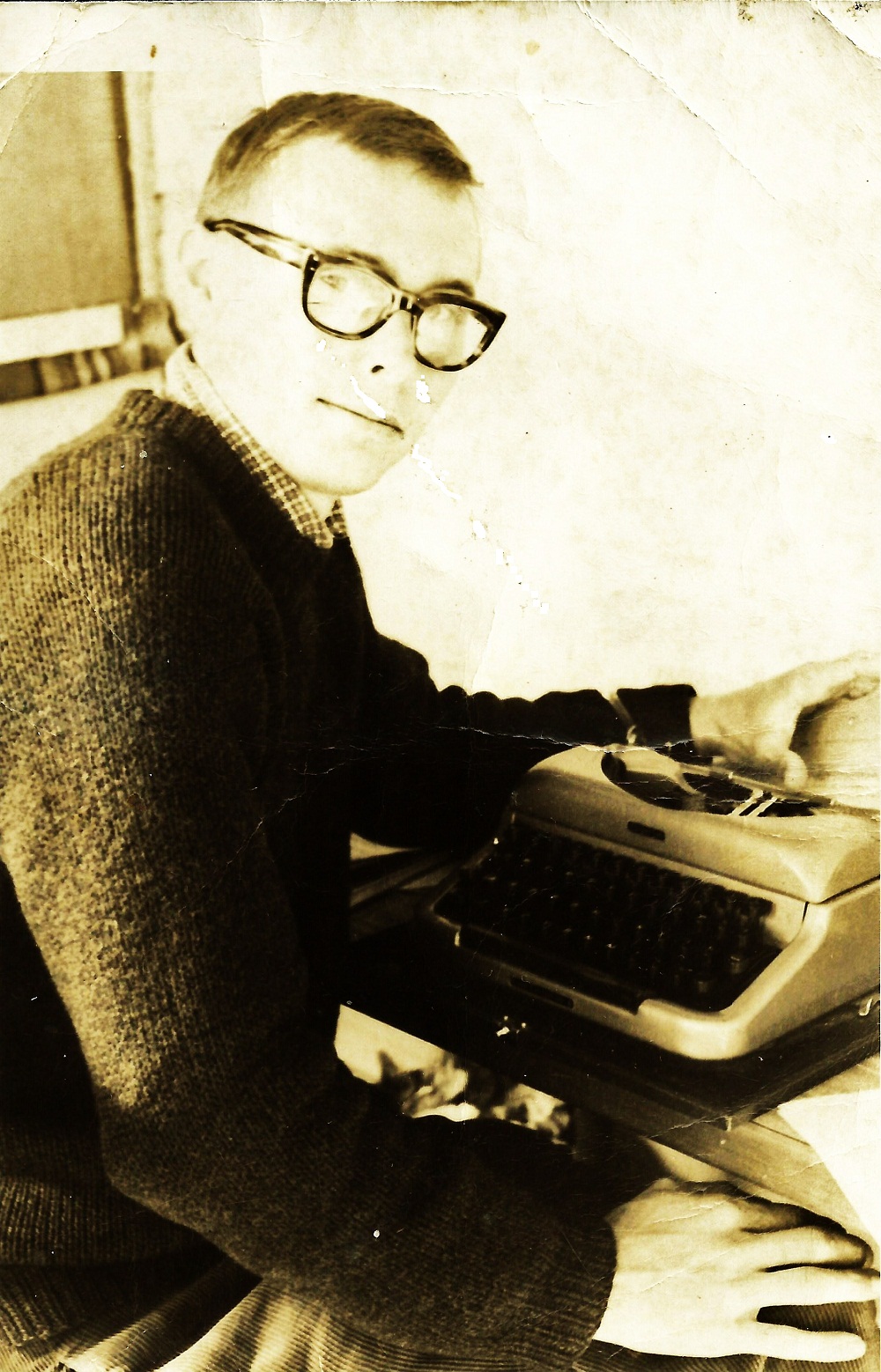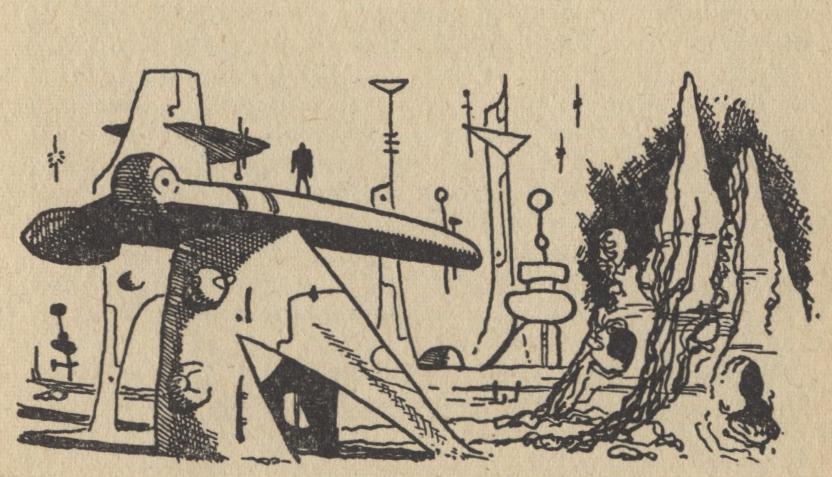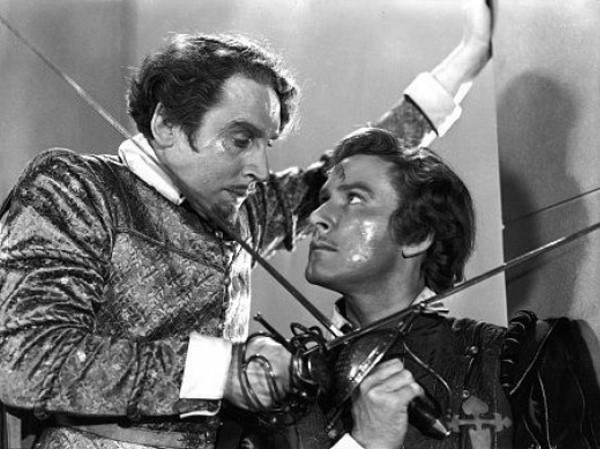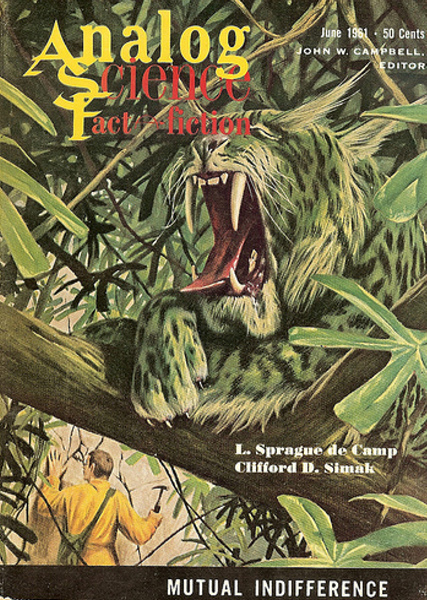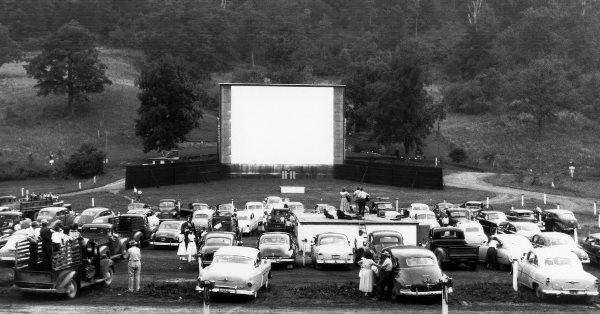
by Mark Yon
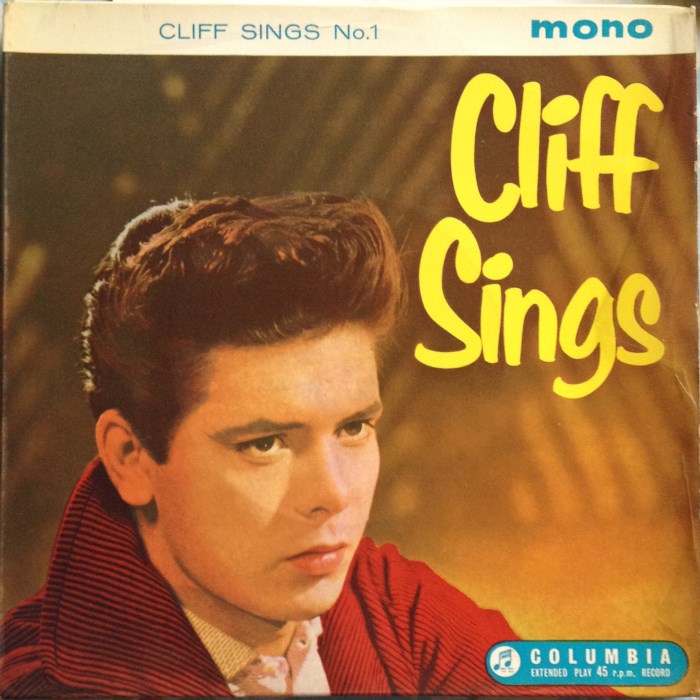
British heartthrob, Cliff Richards, sings "Here Comes Summer"
The coldness of the now classified as ‘record-breaking Winter’ (record-breaking for all the wrong reasons!) has given way to lighter and warmer things weather-wise here, which is good, bearing in mind what seems to be happening in British SF circles this month. Let's dive right in to the July 1963 New Worlds, shall we?
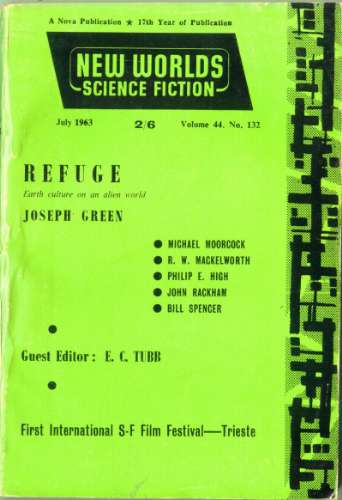
And we’re back to the no-picture, dayglo colours of earlier New Worlds covers. The bilious green is certainly…eye-catching.
Let’s Build A Bridge, by Mr. E.C. Tubb
Following the completion of his serial in June, this month Mr. E.C. Tubb points out that most s-f alienates itself from readers by the language it uses. In an attempt to bridge the gulf between “the outsider and the addict,” he suggests that, if s-f is to survive, it must entertain, communicate, educate and (most essentially for s-f) enchant. Nothing wrong with this point of view, in my opinion. After some of the aggressive views exhibited of late, it’s nice to read a conciliatory piece, but I do feel that this need to make the genre accessible to ‘outsiders’ may be out of date. My impression is that most s-f readers like their use of special genre terminology, psi-beams and all, which makes them part of a select group who ‘get it.’
Refuge, by Mr. Joseph Green
As heralded last month, we begin with what is being touted as the last story in Mr. Green’s ‘Loafers’ series. Refuge is a so-so story of how humans and the Loafers continue to get along for planetary unity and mutual benefit. Here we see the consequences of this interaction, as one of the young Loafers decides to go ‘walkabout’ to determine the effects of such mutual co-habitation. Whilst many authors would try to use this to tell a story of communal compromise and future progress through social integration, here the ending is, instead, a rather typically British dystopian view. I’m sure that someone could make a connection between this and the current Race Riots going on in the USA, or Native American/American relations or even Australian/Aborigine relationships but, really, that would be pushing a simile too far. Nevertheless, it’s one of the better efforts in the series, if rather bleak, but nothing particularly ground-breaking. 3 out of 5.
The Last Salamander, by Mr. John Rackham
The return of another series, Mr. Rackham’s tale is another of his ‘X-men’ stories, those people with special powers last seen in Confession in New Worlds in May 1963. Surprisingly, for superhero stories, they’ve all been pretty mundane up to now, but The Last Salamander is a more interesting, if unoriginal, prospect. It’s basically an alien monster story where the creature is inconveniently found feeding off the energy generated in a power station. It all seems rather Twilight Zone-esque to me, but made depressing by the point that the automatic reaction of the humans is to decide how to kill it. 3 out of 5.
The Nothing, by Mr. Bill Spencer
Mr. Spencer last appeared in May 1962, although I remember nothing of the story myself. Ironically, The Nothing is another story of interstellar instantaneous travel (see also Mr. David Rome’s story, Moonbeam, back in the September 1962 issue) and the intrepid guinea-pigs who risk travelling into the unknown in doing so. Dare I say it, for a story about facing the unknown it’s nothing special – nothing of importance! 2 out of 5.
Pattern of Risk, by Mr. R.W. Mackelworth
You may have noticed that I’ve liked a lot of this recent author’s work in New Worlds, so I had high hopes of this story. Pattern of Risk is a story of what happens when the insurance risk of spaceships can be accurately predicted. Like Mr. Asimov’s psychohistory it’s a bit dodgy in its logic, and in the end, ironically, it lacks risk! 2 out of 5.
Point of No Return, by Mr. Philip E. High
Mr. High’s work has varied enormously of late, but this is a better one. It’s an unsurprising story of what happens when a new bioweapon is created on a planet to deal with insurgents. There’s a nice take on how machines and humans could one day be symbiotically combined in warfare – I’m sure it could happen one day – and it does raise ethical questions about such actions. Machines may one day take over the world! Not a new idea (Ms. Anne McCaffrey did something similar in a story a couple of years ago, for example) but done well. 3 out of 5.
Flux, by Mr. Michael Moorcock
And that leads me to the story that indicates the return of Mr. Michael Moorcock. Last time Mr. Moorcock appeared in New Worlds I was pleasantly surprised, and this time Flux also entertains. It is a time-travel story, but written with enough style and panache to make the tired old cliché seem new – the sort of entertainment which Mr. E. C. Tubb was suggesting s-f should be aiming for in his Editorial, I think. At times, the language is a little over-worked in purple prose – “What did it mean, he wondered, this Gargantua which sat perpetually bellowing athwart the whole content?” for example – but I liked the story’s energy and its take on travelling the timelines, even if it is rather similar to Mr. Spencer’s story in the same issue! Whilst it is not Mr Moorcock’s best – he may be best suited to continuing writing Fantasy rather than s-f – it is an intriguing advance on the linear nature of Mr. H.G. Wells’ time travels. 3 out of 5.
Book ~Reviews, by Mr. Leslie Flood
In this month’s selection, Mr. Robert Sheckley’s Immortality Inc. is ‘slickly written’, we see the reprint of Mr. Robert Heinlein’s Red Planet, another in the current trend of ‘catastrophe novels’, this time Mr. Robert Bateman’s When The Whites Went and Mr. Clifford Simak’s ‘also-ran’ They Walked Like Men. Readers of Galactic Journey will probably recognise most of the stories in a ‘superb assortment’ from The Best from Fantasy & SF – 10th Series. There’s a brief review of a controversial book, The Dawn of Magic.which gets a brief mention, that its study of scientific unorthodoxy should generate discussion, but seems to be here more because its authors are at the film festival mentioned next.
ARTICLE: The First International S-F Film Festival, by Mr. John Carnell.
After the film review last month (The Day of the Triffids is being shown here, coincidentally) we now have an advance notice of this cross-genre event in Trieste, even though it is actually over by the time we’re reading this.
There’s nothing much to get excited about here, although the event itself looks like fun, and I am pleased that the event celebrates the international nature of s-f. It is so easy to become parochial in such matters, if you are not careful. There will be a report next month, evidently.

In summary, the July issue of New Worlds is odd, frankly. There’s a combination of old and new, but overall it’s a bit of a mess. Strangely, the stories I hoped would like have underwhelmed, whilst some of the more mundane offerings have been better than I was expecting. It really does seem to reflect that transition of the genre, from the old to the new, but I’m not sure that it’s entirely successful.
Until next month..








